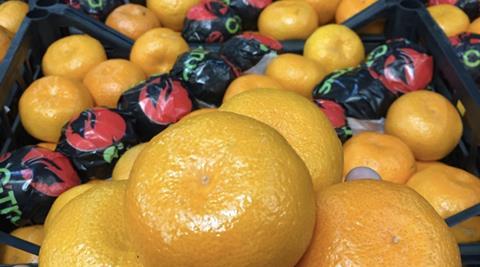Production shortfalls in other European countries this season augur well for Turkey this season
Easy peelers will be short supply in the European and North American markets during the early part of the 2023/24 citrus season due to shorter crops and an abundance of mid to low sizes in many producing countries, especially in early season varieties like clementines.

The only country to buck the trend is Turkey, where the ongoing expansion in citrus acreage is expected to bring a double-digit increase in exports of soft citrus in 2023/24.
The forecasts were published at Wednesday’s online Global Citrus Outlook Forum, organised by the World Citrus Organisation in collaboration with Fruitnet Media International and Cirad.
According to Turkstat, Turkish planted an additional 38,000ha of citrus between 2017 and 2022, of which easy peelers made up around 17,000ha. Sever Güzelmanzur of Turkish citrus promotion group Akib told the forum that Turkey expects exports of soft citrus to increase by 11 per cent this season.
“There are two main reasons for this, firstly, new acreage coming through and secondly, the climate, which last year had a big impact on production, not just in Turkey but across the whole of the Mediterranean region,” he said. “This year the climate has been much more beneficial.”
The same cannot be said for other European citrus producing countries. In Spain, easy peeler production is pegged at 1.853m tonnes this season, well down on the 2.317m tonnes the country produced in 2021/22. Clementine and early mandarin volumes from Valencia and Castellón are down considerably, although the late mandarin crop is expected to be similar to last season. According to citrus consultant Paco Borrás, the last season to see such low production figures was 2009/10.
Morocco, meanwhile, is experiencing its second consecutive year of drought, further reducing citrus acreage. Mustafa Zemzani of Les Domaines Agricoles said the the lack of surface and underground water has caused quality and sizing issues this season.
“Overall we expect we’ll be able to export around 535,000 tonnes of citrus compared to 472,000 tonnes last season,” he said. “We saw early internal ripening this season, but the external quality of the fruit did not match the internal maturity so we’ve delayed the export of clementines somewhat. In general we think that Nadorcott will cover the shortfall in clementines.”
Elsewhere, the Israeli citrus campaign is mired in uncertainty due to the military conflict with Hamas.
“At this time of year we’re usually at the beginning of citrus season, but all activities have been disrupted,” explained Roni Nakar of Israel’s Plants Production and Marketing Board.
“Treatments in groves, picking and packing can’t be carried out because of the ongoing military threat – workers can’t access the orchards.
“It’s currently impossible to assess the impact of the war on the season but it’s already clear that there will be considerable damage to the citrus industry. It’s not possible to estimate the war effect at this stage of the season. The grim reality of war does not allow for optimal execution of our plans.”
Across the Atlantic, Kim Flores of Florida’s Pro Citrus network said demand for soft citrus in the US remained strong. “We see good opportunities to bring in Moroccan imports of mandarins, especially on the East Coast,” she said. “Western markets are served by California but anywhere east of the Mississippi you’ll see a good strong market for mandarins from Morocco.”



